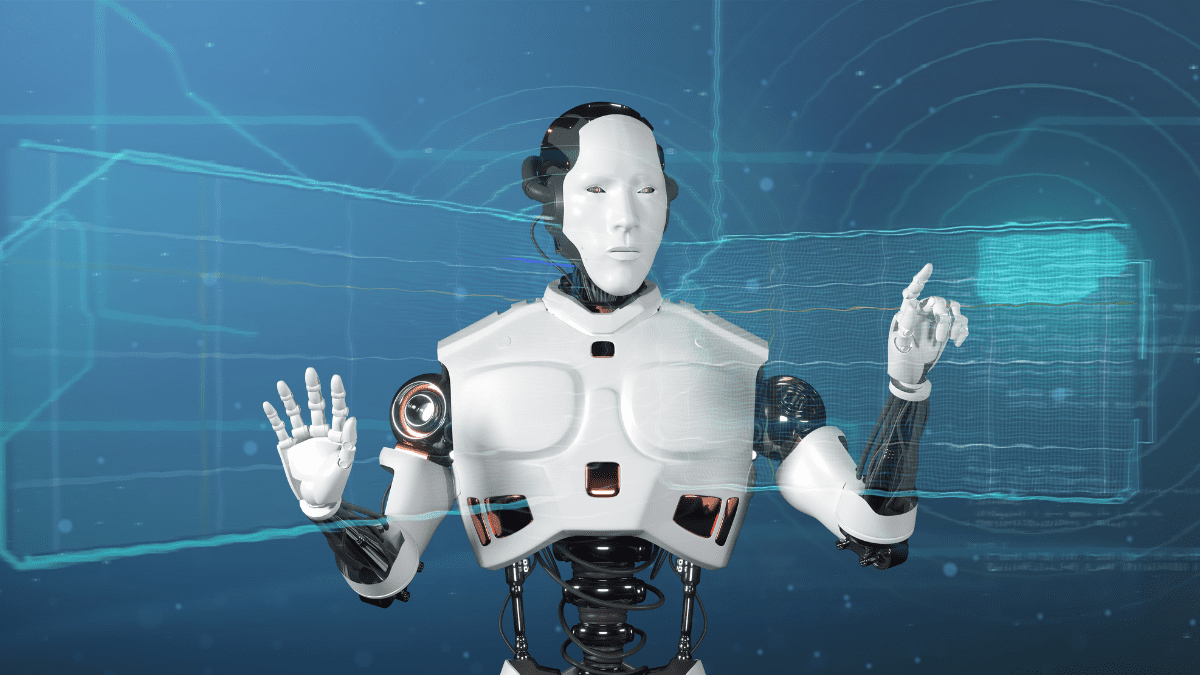How AI is Promoting Sustainability Across Industries: Have Ever wondered how AI could help save the planet? It might seem like just a buzzword, but Artificial Intelligence is playing a huge role in promoting sustainability across various industries. From optimizing energy use to reducing waste, AI is making a significant impact.
- AI in Energy Management: Reducing Consumption, Boosting Efficiency
AI Driving Sustainability being used to monitor and optimize energy
| Key applications: |
| Smart grids that balance supply and demand Predictive maintenance to prevent energy waste AI-driven energy management systems in buildings |
Sustainable Agriculture: AI-Powered Precision Farming
AI is revolutionizing agriculture by helping farmers grow more food with fewer resources.
Sustainable agriculture is therefore defined as farming that effectively feeds society’s current human and textile demands, in a manner that does not render farming unsustainable for today’s generations or for generations to come. It can be based on an understanding of ecosystem services. There is not any single way, which guarantees making agriculture more sustainable.
The first key principle of developing agriculture within sustainable food systems is that businesses and farming should be more adaptable. Agriculture is a sector that has a huge environmental impact; it is contributing to climate change through food chains which are responsible for one-third of the total anthropogenic greenhouse gas emissions, water depletion, water pollution, land degradation, deforestation, and other processes, while at the same time, agriculture is experiencing changes due to climate change.
Organic farming when defined as the practice of cultivating crops or raising animals in manners that are friendly to the environment and which do not harm any human or natural system. This is about impacts on the soil, water, biodiversity, and any resources, within or downstream of the farm, and people involved in farming and those in the extended community. Sustainable Farming can comprise permaculture, agroforestry, mixed farming, and multiple cropping, crop rotation farming.
Key benefits:
- Optimized use of water and fertilizers
- Reduced need for pesticides
- Increased crop yields
Waste Management: AI for Smarter Recycling
| Key technologies: |
| AI-powered sorting robots Predictive analytics for waste collection Smart bins that reduce contamination in recycling streams |
- AI in Transportation: Optimizing Routes, Reducing Emissions
AI is improving the efficiency of transportation systems, reducing emissions and fuel consumption.
Key applications:
- AI-driven route optimization for delivery trucks
- Autonomous vehicles that reduce traffic congestion
- Smart traffic management systems
AI Driving Sustainability in Climate Change Research: Better Predictions, Better Actions
AI is playing a crucial role in climate change research, helping scientists make more accurate predictions and develop better solutions.
Key applications:
- AI models for predicting weather patterns
- Analyzing satellite data to monitor environmental changes
- Identifying the most effective climate change mitigation strategies
- AI in Water Management: Optimizing Usage, Reducing Waste
AI is helping to manage water resources more efficiently, crucial in areas where water is scarce.
Key applications:
- AI-driven irrigation systems
- Predictive analytics for water usage
- Smart water meters that detect leaks
AI Driving Sustainability in Supply Chain Management: Building Sustainable Practices
Key benefits:
- Reduced transportation emissions
- Minimized inventory waste
- Improved efficiency in production processes
- AI in Renewable Energy: Maximizing Output, Minimizing Costs
AI is being used to optimize the generation and distribution of renewable energy.
Key applications:
- Predictive maintenance for solar panels and wind turbines
- AI-driven energy storage systems
- Optimizing the integration of renewable energy into the grid
- AI for Sustainable Business Practices
AI Driving Sustainability is helping businesses become more sustainable by providing insights into their operations and suggesting ways to reduce their environmental impact.
| Key applications: |
| AI-driven sustainability audits Predictive analytics for reducing waste Optimizing resource use in manufacturing |
- The Future of AI in Sustainability
AI’s role in promoting sustainability is just beginning, and its potential is enormous.
Key future developments:
- AI-driven solutions for reducing ocean pollution
- AI in developing new, sustainable materials
- Integration of AI into all aspects of environmental management
Conclusion of AI Driving Sustainability
AI is proving to be a powerful tool in the fight against climate change and environmental degradation. By leveraging AI, we can make smarter decisions, reduce waste, and create a more sustainable future.
Q: How does AI help reduce energy consumption?
A: AI optimizes energy use by analyzing real-time data to balance supply and demand, predict maintenance needs, and enhance energy efficiency in buildings.
Q: Can small businesses benefit from AI-driven sustainability solutions?
A: Yes, AI-driven tools like energy management systems, waste reduction analytics, and sustainability audits can help small businesses reduce costs and improve their environmental impact.
Q: What role does AI play in climate change research?
A: AI helps by creating accurate models for predicting weather patterns, analyzing environmental data, and identifying the most effective climate change mitigation strategies.
Q: Is AI in waste management limited to large-scale operations?
A: While AI is widely used in large-scale waste management, small businesses can also benefit from AI-driven sorting and recycling systems to improve their waste management practices.
